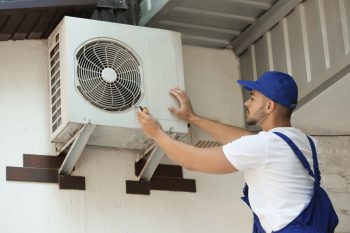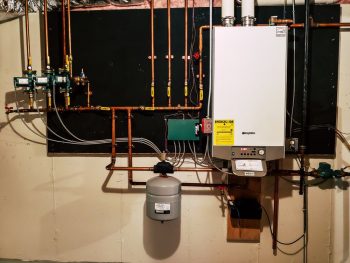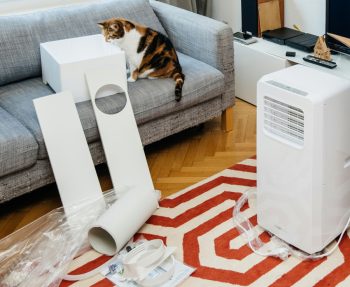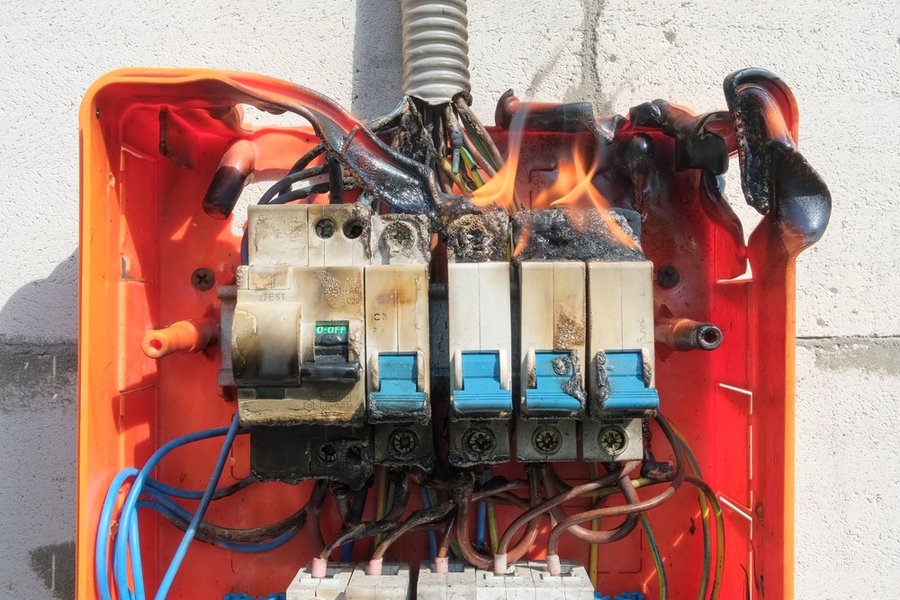
Circuit breakers are an essential safety feature in any electrical system. They safeguard against overloading, short circuits, and other electrical faults that can cause fires and other hazards.
However, circuit breakers can still fail and burn out despite their importance, leading to disruptions in power supply and potentially dangerous situations.
Here are some key points to keep in mind:
- Circuit breaker burnout can be caused by factors such as overloading, short circuits, age, and environmental factors.
- Regular maintenance, proper installation, and replacement of outdated or damaged electrical components can help prevent circuit breaker burnout.
- A surge protector can help shield your electrical system from power surges and prevent the circuit breaker from burning.
- Taking proactive measures to prevent circuit breaker burnout ensures the safety and saves time and money by avoiding potential damages and disruptions.
- If you suspect your circuit breaker has burned out, turn off the power to the affected circuit and contact a qualified electrician immediately.
By keeping these key points in mind, you can help prevent circuit breaker burnout and ensure your electrical system is safe and reliable.
This article will delve deeper into the five causes of circuit breaker burnouts and provide practical tips on preventing them.
From overloading to environmental factors and manufacturing defects, we will cover the most common reasons why circuit breakers burn out and offer guidance on avoiding these issues.
Common Causes of Circuit Breaker Burnout
Understanding the common causes of circuit breaker burns is essential to prevent electrical hazards and ensure the safety and reliability of your electrical system.
Let’s look at some of the most common causes of circuit breaker burnout and how to prevent them.
1. Overloading and Overheating
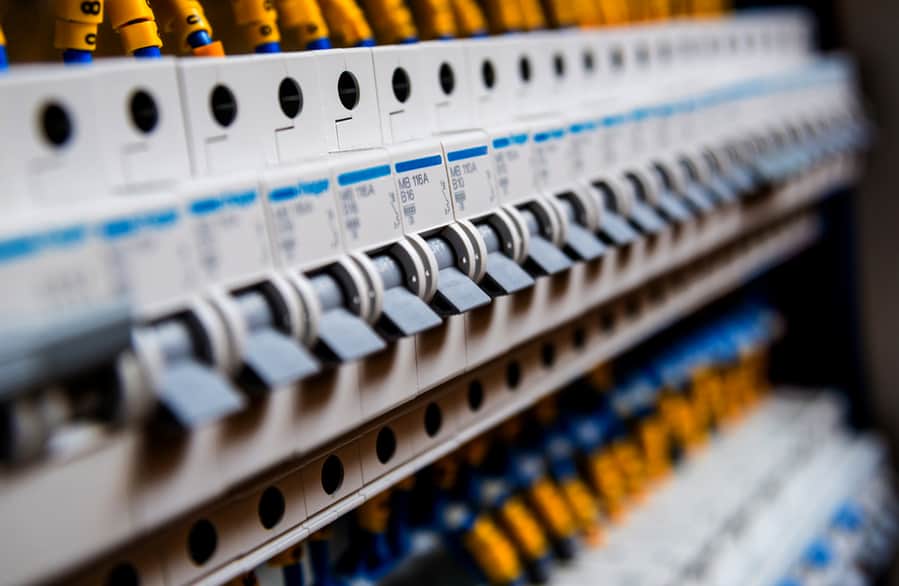
Overloading and overheating are closely related and often occur as common causes of circuit breaker burnout.
Overloading occurs when the electrical load on a circuit exceeds the capacity of the circuit breaker, causing it to trip.
When a circuit is overloaded, it generates excess heat that can damage the circuit breaker’s internal components and cause it to burn out.
Similarly, overheating can also be caused by loose connections, damaged wires, or faulty electrical equipment. Electrical components overheating can cause a circuit breaker to trip or burn out.
- How To Prevent This?
To prevent overloading and overheating, it is important to regularly inspect your electrical system, ensure all connections are tight and secure, and avoid using damaged or faulty electrical equipment.
It is also essential to distribute the electrical load across multiple circuits and avoid using extension cords or power strips, which can increase the risk of overloading and overheating.
Regularly maintaining your electrical equipment, such as fans and air conditioning units, can also help prevent overheating and potential circuit breaker burnout.
2. Short Circuits

Short circuits are another common cause of circuit breaker burnout.
A short circuit occurs when a hot wire comes into contact with a neutral or ground wire, causing a surge of electrical current to flow. This surge of electricity can overload the circuit, causing the circuit breaker to trip or even burn out.
A short circuit can occur for various reasons, including damaged or exposed wires, faulty electrical equipment, or improper installation of electrical components.
- How to Prevent This?
To prevent short circuits and subsequent circuit breaker burnout, it is essential to identify and repair any damaged or exposed wires in your electrical system.
This involves checking for frayed or damaged wiring, inspecting electrical outlets for any signs of damage or wear, and ensuring that all electrical cords and cables are in good condition.
Ensuring that all electrical components are properly installed and maintained is also important. This involves hiring a licensed electrician to install new electrical equipment, inspecting your electrical system regularly, and replacing any faulty or outdated equipment as needed.
Additionally, it’s crucial to follow proper electrical safety guidelines, such as avoiding using electrical equipment in wet areas, using extension cords as permanent wiring solutions, and ensuring that all electrical components are properly grounded.
By taking these steps, you can keep your electrical system safe and prevent circuit breaker burnout caused by short circuits.
3. Aged Circuit Breaker
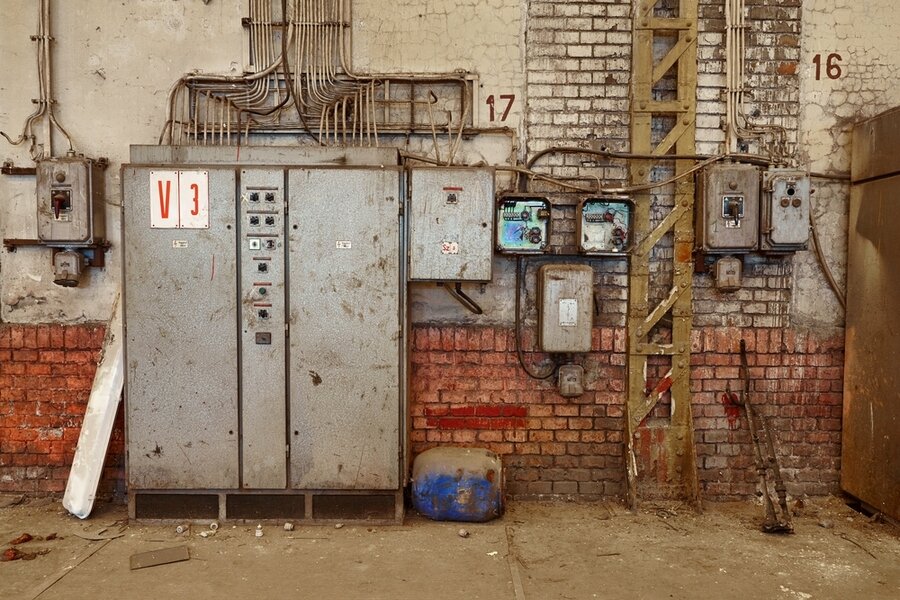
Like any other electrical component, circuit breakers have a limited lifespan. Over time, the internal parts of a circuit breaker can wear out due to exposure to heat, vibration, and other factors.
As the circuit breaker ages, its ability to trip reliably and protect the circuit decreases, increasing the risk of circuit breaker burns and other electrical hazards.
- How to Prevent This?
Manufacturers generally recommend replacing circuit breakers every 15-20 years.
However, several factors can affect the lifespan of a circuit breaker, including the quality of the breaker, the conditions of its installation, and the amount of usage it experiences.
To determine whether your circuit breaker needs replacement, it’s crucial to perform regular inspections and testing.
This involves visually inspecting the circuit breaker for signs of wear or damage, testing the breaker with a multimeter to ensure its functioning correctly, and checking the manufacturer’s recommendations for the expected lifespan of the breaker.
If your circuit breaker is near the end of its expected lifespan or showing signs of wear or damage, replacing it as soon as possible is crucial.
This helps prevent the circuit breaker from burning, reduces the risk of electrical hazards, and ensures the safety and reliability of your electrical system.
4. Environmental Factors

Environmental factors can contribute significantly to circuit breaker burnout. For example, high temperatures, humidity, and dust can all damage the internal components of a circuit breaker, leading to failure and potential hazards.
High temperatures can cause the metal components inside the circuit breaker to expand and contract, which stresses the internal components, potentially causing failure.
Additionally, humidity and moisture can cause corrosion of metal components, leading to increased resistance and heat generation that can cause the circuit breaker to burn out.
Dust and other contaminants can also cause problems for circuit breakers, particularly in industrial settings. Dust can accumulate on the internal components of the circuit breaker, insulating them and causing overheating.
This can lead to circuit breaker burnout and potential electrical hazards.
- How to Prevent This?
To prevent environmental factors from causing the circuit breaker to burn out, it’s essential to install circuit breakers in a cool, dry location, away from sources of heat and moisture.
In industrial settings, it’s crucial to regularly clean and maintain circuit breakers to remove dust and other contaminants that can cause problems.
It’s also vital to ensure that circuit breakers are rated for specific environmental conditions in which they will be used. For example, circuit breakers in outdoor or high-humidity environments may require additional protection, such as a sealed enclosure or a special coating to prevent corrosion.
Taking these steps to protect your circuit breakers from environmental factors can help prevent circuit breaker burnout, ensure the safety and reliability of your electrical system, and avoid potential hazards.
5. Manufacturing Defects

In rare cases, circuit breakers can have manufacturing defects that cause them to fail prematurely.
These defects can range from loose connections and faulty components to incorrect assembly, resulting in the circuit breaker not functioning correctly and potentially leading to circuit breaker burnout and other electrical hazards.
- How to Prevent This?
To prevent circuit breaker burnout due to manufacturing defects, buying circuit breakers from reputable manufacturers and performing regular inspections and testing to ensure they are functioning properly is important.
If you suspect a circuit breaker has a manufacturing defect, it should be replaced immediately to prevent potential hazards.
What Happens When a Circuit Breaker Burns Out?
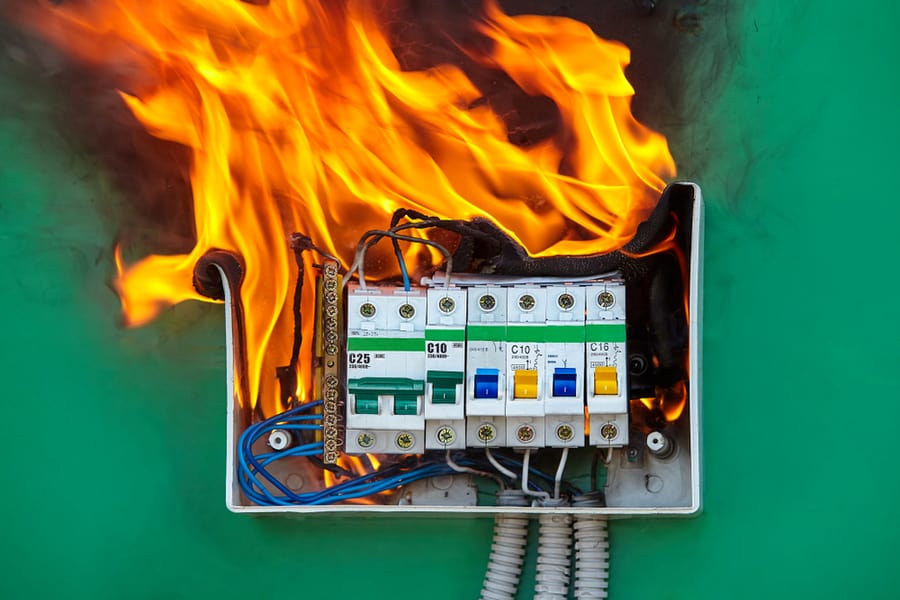
When a circuit breaker burns out, it means that the internal components of the circuit breaker have failed due to an overload, short circuit, or other issues.
This can cause the circuit breaker to malfunction, potentially leading to electrical hazards and safety issues.
When a circuit breaker burns out, it may trip and fail to reset, meaning that the affected electrical circuit will no longer receive power.
In some cases, the circuit breaker may allow electricity to flow, even if overloaded or shorted, which can create a fire hazard or other safety risks.
Additionally, circuit breakers that have burned out may emit smoke, sparks, or even flames, which can cause damage to the surrounding area and potentially ignite a fire.
Suppose you suspect that a circuit breaker has burned out. In that case, it’s important to immediately turn off the power to the affected circuit and contact a qualified electrician to inspect and repair the issue.
Remember, prevention is always better than a cure, and taking action now can save you time, money, and headaches.
So don’t wait until a circuit breaker burns out, take action today to safeguard your electrical system and enjoy peace of mind knowing that you are doing your part to prevent circuit breaker burnout.
Essential Safety Tips for Working With Circuit Breakers
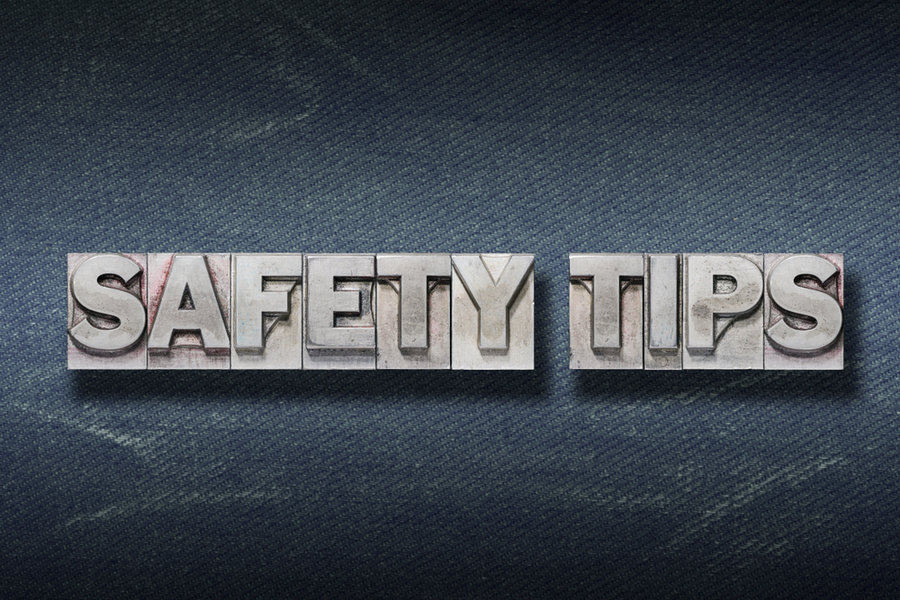
Working with circuit breakers can be dangerous, as they are designed to handle high-voltage electrical currents.
Whether installing a new circuit breaker, replacing an old one, or performing maintenance on your electrical system, it’s essential to take proper safety precautions to protect yourself from injury.
Here are some important safety tips to keep in mind when working with circuit breakers:
- First, always turn off the main breaker before working on electrical projects.
- Before installing new equipment, check load requirements on your wiring and breaker to ensure they are sufficient.
- When replacing a circuit breaker, match amp requirements and never use a higher-amp one.
- Do not add another breaker to your panel if there is no open slot to avoid overloading circuits.
- Finally, practice strict safety measures and act as if the circuit is live, even if the main breaker is off.
- Avoid touching feeder wires leading into the electrical panel, as they are always energized and can cause electrical shock.
- Test AFCI, GFCI, and CGFCI breakers once a month and have all new electrical work inspected by a licensed electrician to ensure it meets code requirements.
Following these safety tips can help prevent electrical accidents and injuries when working with circuit breakers.
Remember, working with electricity can be dangerous, and it’s always better to err on the side of caution regarding your safety.
Conclusion
It is important to remember that a burn circuit breaker is not only a safety hazard but also an inconvenience, causing power outages and disrupting daily activities.
Therefore, it is crucial to take proactive measures to prevent circuit breaker burnout, such as performing regular maintenance, upgrading outdated electrical components, and investing in surge protectors to shield your electrical system from power surges.
These steps protect yourself and others from potential electrical hazards and ensure your electrical system functions efficiently and effectively.
Frequently Asked Questions
What Are the Signs of a Burnt-Out Circuit Breaker?
Signs of a burnt-out circuit breaker include a tripped breaker that won’t reset, a burning smell, smoke, sparks from the breaker panel, or a circuit breaker that feels hot.
Is It Safe To Continue Using a Burned-Out Circuit Breaker?
Using a burned-out circuit breaker is unsafe as it can cause electrical fires and other hazards. It should be replaced as soon as possible by a qualified electrician.
How Often Should I Replace My Circuit Breakers?
Circuit breakers should be replaced every 15-20 years, depending on the manufacturer’s recommendations.
Additionally, circuit breakers that show signs of wear or damage should be replaced immediately.
Can Circuit Breakers Be Repaired if They Burn Out?
No, a burned-out circuit breaker must be replaced to ensure proper safety and functionality.




